What is a stroke?
A stroke is a medical emergency that occurs when an area of the brain doesn’t receive enough oxygen-rich blood to function properly. As a result, cells in the affected part of the brain no longer work. The loss of too many brain cells can cause permanent damage to your physical, cognitive and emotional health, including paralysis and memory loss. Strokes can also be fatal. If you or someone around you may be having a stroke, call 911 right away. A stroke needs immediate attention. Quick treatment can save a life and reduce the risk of serious complications. Don’t wait—every second matters.
Take our quiz to learn about your stroke risk and how to reduce it
Types of strokes
All strokes interrupt blood flow to part of the brain. However, why they occur varies, and the cause of a stroke plays a key role in how physicians treat this condition.
Most strokes occur because a blood clot or a deposit of a fatty substance called plaque prevents blood from reaching an area of the brain. In some cases, these blockages are temporary and clear up on their own.
Less commonly, an artery in the brain may leak or break, flooding part of the tissue with blood and causing cells to die under the pressure.
Types of stroke include:
-
Ischemic stroke
Ischemic strokes occur when a blood clot or plaque blocks an artery that supplies blood to the brain. There are three types of ischemic strokes:
- Embolic stroke: A blood clot travels from the heart and goes to the brain, blocking an artery. The most common cause is atrial fibrillation, an irregular heart rhythm, but there are other causes like heart failure and clotting disorders.
- Large vessel disease: Plaque builds up in the large arteries in the neck (such as the carotid arteries) or the brain and can block blood vessels, causing a stroke.
- Small vessel disease: Small arteries in the brain become stiffened or have plaque buildup and become blocked.
-
Hemorrhagic stroke
Hemorrhagic strokes occur when blood from a leaking or ruptured brain artery damages brain cells. There are two types of hemorrhagic strokes:
- Intracerebral hemorrhage: Bleeding from a ruptured vessel occurs in the brain tissue.
- Subarachnoid hemorrhage: Bleeding occurs outside the brain when an aneurysm or blood vessel bursts.
-
Transient ischemic attack (TIA)
A TIA is a blockage of blood flow to the brain that can stop after only a few minutes, though it can last up to 24 hours.
Stroke symptoms
Stroke symptoms can affect your whole body, and they often occur without warning. The symptoms you experience depend on the area of the brain affected and the bodily functions that area controls.
In general, the sudden appearance of any one or combination of the following symptoms may indicate a stroke:
- Blurred vision, double vision or loss of vision
- Confusion
- Difficulty speaking or understanding others’ speech
- Facial drooping
- Intense headache
- Loss of balance or coordination
- Numbness or weakness on one side of the body
When to see a doctor
If you or someone else experiences stroke symptoms, even if they come and go, seek medical help immediately. Every second counts.
If you think someone may be having a stroke, B.E. F.A.S.T. and do the following test:
- Balance: Ask the person to stand. Look for sudden loss of balance or coordination.
- Eyes: Ask if they are experiencing double vision, blurriness, or sudden vision loss in one or both eyes.
- Face: Ask the person to smile. Look for a droop on one or both sides of the face.
- Arms: Ask the person to raise both arms. Look for one arm to drift downward or feel weak.
- Speech: Ask for the person to speak. Listen for slurred speech or difficulty finding words.
- Time: Call 911 right away. Note the time symptoms started—this helps doctors decide on the best treatment.
Stroke risk factors
A stroke can happen to anyone at any age, but certain factors increase your risk. While you can't change your age or family history, understanding your risk and making healthy choices can help lower your chances of having a stroke.
Certain factors you can control make up 80% to 90% of all strokes:
- High blood pressure
- Obesity
- Lack of physical activity
- Unhealthy diet
- Smoking
Both types of stroke—ischemic and hemorrhagic—share common risk factors like high blood pressure, diabetes and high cholesterol. However, some factors are unique to each type. For example, blood clots can form from heart conditions like coronary artery disease or atrial fibrillation, while bleeding can happen from taking blood thinners.
Other risk factors include lifestyle, genetics and your environment:
Age
Stroke risk increases as you get older
Family history
If someone in your family has had a stroke, especially at a young age, your risk is higher.
Environmental factors
Living or working in areas with air pollution can increase your risk.
Health conditions
Issues like sleep apnea, kidney disease and migraines can make you more likely to have a stroke.
Lifestyle choices
Drinking too much alcohol, getting too much sleep (over nine hours), or using illegal drugs can raise your stroke risk.
Race and ethnicity
Stroke is more common in Black, Alaska Native, American Indian and Hispanic adults than in white adults.
Sex
Men are more likely to have a stroke at younger ages, but women’s lifetime risk is higher. Women on birth control or hormone therapy, pregnant women and women who’ve recently given birth are at greater risk. Conditions like high blood pressure during pregnancy (such as preeclampsia ) can also increase stroke risk later in life.
Other conditions
Conditions like lupus or rheumatoid arthritis can cause inflammation and increase stroke risk.
Ask the Expert: Stroke causes and risk factors
What causes a stroke? Can diabetes increase stroke risk? Do you know what to do if someone is having a stroke?
Lauren Fournier, MD, vascular neurologist on the Baylor Scott & White medical staff, answers common questions about stroke and shares signs of stroke to look for.
How is a stroke diagnosed?
Calling 911 is the most effective way to ensure doctors can diagnose a stroke and start treatment as quickly as possible. When you arrive in the emergency department, a team that includes an emergency medicine physician, neurologist and other providers will diagnose a stroke by looking at your symptoms, medical history and results from tests and exams. They will determine the type of stroke, what caused it, which part of your brain was affected, and whether there was any bleeding. If you’ve had a transient ischemic attack (TIA), your doctor will investigate the cause to help prevent a stroke in the future.
-
Medical history and exam
Your doctor will gather information about your medical history and, crucially, which symptoms you experienced and when they started. In addition, you’ll likely have a neurological exam to understand the severity of your stroke and plan the best treatment.
During the exam, your provider will check you for the following:
- Confusion
- Coordination and balance
- Mental alertness
- Numbness or weakness in your face, arms and legs
- Trouble speaking or seeing clearly
Your doctor may check for signs of carotid artery disease, a common cause of ischemic stroke. They’ll listen to your carotid artery with a stethoscope. If they hear a whooshing sound, called a bruit, it could indicate reduced blood flow due to plaque buildup in the arteries.
-
Imaging and tests
Imaging tests allow your provider to see inside the brain and check the condition of your blood vessels. As a result, your provider can determine whether your stroke was caused by a blockage or a bleed and where it occurred—crucial information for deciding which treatment to use.
There are several imaging tests used to diagnose stroke, including:
- Computed tomography (CT) scan: Brain CTs are the go-to imaging test for suspected strokes. They can show stroke-related bleeding and damage.
- CT angiogram: A CT angiogram uses dye to show the blood vessels in the neck and the brain and to look for blockages or stenosis, which is the narrowing of the blood vessels.
- Electroencephalogram: An electroencephalogram measures the electrical activity in your brain and can rule out epilepsy.
- Magnetic resonance imaging (MRI) scan: Like a CT scan, an MRI can show changes in the brain caused by a stroke.
Your doctor may also order other tests, such as:
- Blood tests: Your doctor may order blood tests to check your blood sugar and red blood cell and platelet levels.
- Electrocardiogram (EKG): This test checks your heart’s electrical activity to ensure your symptoms aren’t due to a cardiac issue and to look for atrial fibrillation.
Stroke treatment
Your doctor will treat your stroke based mostly on two factors: type and time.
Treatment for an ischemic stroke typically focuses on breaking up a blood clot and restoring blood flow as quickly as possible. If you are having a hemorrhagic stroke, your doctor will want to reduce blood pressure and stop the bleeding as soon as possible.
Based on the information provided by the medical history, neurological exam, imaging exams and other tests, your stroke care team will decide on the most appropriate form of treatment that can protect your health and limit long-term damage.
Medication
Whether you had an ischemic or hemorrhagic stroke, medication will likely play a key role in treatment.
For an ischemic stroke, you may receive:
- Tenecteplase (TNK) or tissue plasminogen activator (tPA or alteplase): This injectable medication breaks up blood clots so blood can once again reach oxygen-starved areas of the brain. This clot-busting medication is most helpful if you receive it within four and a half hours after your symptoms begin. The sooner the medication is given, the more brain cells can be saved—leading to better outcomes.
- Anti-clotting medications: You may not be able to receive the clot-buster medication for certain medical reasons or if the window of time to administer it has passed. As a result, you may need medications to prevent or stop the growth of blood clots, like aspirin or clopidogrel.
For a hemorrhagic stroke, medication options include:
- Blood pressure medication: Lowering blood pressure in the brain can help stop the bleeding from a ruptured vessel.
- Prothrombin concentrate complex: This medication is sometimes used in people on blood thinners to help stop the bleeding.
- Vitamin K: In some cases, physicians use vitamin K, which helps blood clot and assists with stopping bleeding in the brain.
Rehabilitation
Stroke rehabilitation plays an important part in recovery, helping you regain lost skills and adjust to any changes after a stroke. Rehab usually begins in the hospital within a day or two to support your transition home and lower the risk of another stroke.
Recovery looks different for everyone—it can take weeks, months or even longer. Your care team may recommend:
- Speech therapy to improve talking, understanding and communication.
- Physical therapy to rebuild strength, balance and movement.
- Occupational therapy to make everyday activities like dressing, eating and bathing easier.
Surgery
Depending on the type of stroke, a medical procedure may be necessary to restore blood flow or stop bleeding.
Procedures for an ischemic stroke focus on removing or clearing blood clots. They include:
- Thrombectomy: Your surgeon may insert a catheter into a blood vessel, then with the catheter, isolate the blood clot and use a tool called a stent retriever to remove it.
- Stenting: Your surgeon may insert a catheter into a blood vessel, inflate a balloon and place a mesh tube called a stent to hold the blood vessel open.
- Carotid endarterectomy: A buildup of plaque in the carotid arteries in your neck can cause a TIA or stroke. A carotid endarterectomy removes plaque from the arteries to prevent future strokes.
Procedures for a hemorrhagic stroke include:
- Aneurysm clipping: Your surgeon will place a clip at the base of an aneurysm to close it and stop blood from escaping into the brain tissue.
- Endovascular (coil) embolization: Your surgeon will send a coil to an aneurysm in the brain through a catheter. Once the coil is in place, a blood clot will grow around it and seal the aneurysm.
- Blood clot evacuation: Sometimes, hemorrhagic strokes require surgical procedures to remove the blood from the brain.
Rapid stroke care when it matters most
When every minute counts, our expansive telestroke network provides vascular neurology consultations within minutes, 24/7, connecting people at hospitals across Central and Northern Texas with Baylor Scott & White stroke specialists.
With telestroke technology, your stroke team can:
- Consult with a board-certified stroke neurologist within minutes
- Reduce the time needed to deliver stroke treatments
- Improve outcomes for you or a loved one having a stroke
Finding strength together: stroke support resources
Looking for a stroke support group near you? Baylor Scott & White offers a network of stroke resources designed to support both survivors and caregivers. Whether you prefer connecting virtually or attending in-person meetings across North and Central Texas, our stroke support groups provide a welcoming space to share, learn and heal.
Recovering from a stroke can be a challenging journey. Our support groups help survivors and their loved ones navigate life after a stroke, offering encouragement, shared experiences and practical advice. While family and friends are vital to recovery, connecting with others who truly understand can make a difference.
No matter where you receive care, all stroke survivors and caregivers are welcome to join our stroke support groups. You're not alone—we're here to help.
College Station
Baylor Scott & White Medical Center – College Station
When
4th Tuesday of every month from 2:30 - 3:15 PM
Format
In-person
Where
1600 Joseph Dr, Ste 2000
Bryan, TX 77802
Registration
No registration needed
For questions, please contact Charlla Neason at 979.213.7037 or Charlla.Neason@EncompassHealth.com.
Dallas
Baylor University Medical Center, part of Baylor Scott & White Health
When
Every Wednesday from 3:00 - 4:00 PM
Format
In-person
Where
3 Truett, 3500 Gaston Ave
Dallas TX 75246
Registration
No registration required
White Rock YMCA
When
Second Tuesday from 6:00 - 7:00 PM
Format
In-person
Where
7112 Gaston Ave
Dallas TX 75246
Registration
No registration required
Grapevine
Baylor Scott & White Medical Center – Grapevine
When
3rd Thursday of every month from 6:00 - 7:00 PM
Format
Virtual (Zoom)
Registration
Email RaBressler@BSWRehab.com and DesLogan@BSWRehab.com
Hillcrest
Baylor Scott & White Medical Center – Hillcrest
When
Last Tuesday of every month from 10:00 - 11:00 AM
Format
In-person
Where
613 Carlyle Dr
Waco, TX 76710
Registration
No registration required
Questions
Call 254.744.9774
McKinney
Baylor Scott & White Medical Center – McKinney
When
3rd Wednesday of every month from 3:30 - 4:30 PM
Format
In-person
Where
Darling classroom (2nd floor)
5252 W University Dr
McKinney, TX 75071
Registration
To register: Email Charisse.Barnes@BSWHealth.org
Plano
Baylor Scott & White Medical Center – Plano
When
3rd Tuesday of every month from 4:00 - 5:00 PM
Format
In-person
Where
Education Rooms 1-4 (Ground level)
4700 Alliance Blvd
Plano, TX 75093
Registration
No registration required
For questions, please contact Shanda.Sinkey@BSWHealth.org
Temple
When
Generally, the 1st or 2nd Tuesday of every month from 5:30 - 7:00 PM. Group meetings on odd-numbered months are intended for stroke survivors, caregivers, family members, and staff. And we kindly ask that those who attend group meetings on even-numbered months are personal caregivers of stroke survivors.
Dates for future groups:
- November 18, 2025
- December 9, 2025 - Caregiver group
- January 6, 2026
- February 10, 2026 - Caregiver group
Format
In-person
Where
We meet in two different locations. Please follow the posted signs at the main clinic entrance. We will either meet in the 1st floor Doctor's Conference Room #173 which is behind the cafeteria (on odd-numbered months). The caregivers support group will meet in the 5th floor Conference Room #504F which is in the Brindley Circles building (on even-numbered months).
Baylor Scott and White Clinic, Brindley Circles
2401 S 31st St
Temple, TX 76508
Registration
No registration required
For more information about the support group please email Erin.Curraspurger@BSWHealth.org or call 254.724.4179.
Waxahachie
Baylor Scott & White Medical Center – Waxahachie
When
3rd Tuesday of every month from 6:00 -7:00 PM (starting Feb. 21)
Format
In-person
Where
Baylor Scott & White Medical Center – Waxahachie
Pitts Board Room
2400 N I35 E
Waxahachie, TX 75165
Registration
No registration needed
For questions, please contact Kelli Hall at Kelli.Puente@BSWHealth.org and Lori Taffet at LETaffet@BSWRehab.com.
Stroke care locations near you
When a stroke happens, every second counts. Getting fast, specialized care can make all the difference. Our network of stroke care locations ensures that you or your loved one can receive expert treatment as quickly as possible. Find a stroke care center near you and get the critical care you need, close to home.
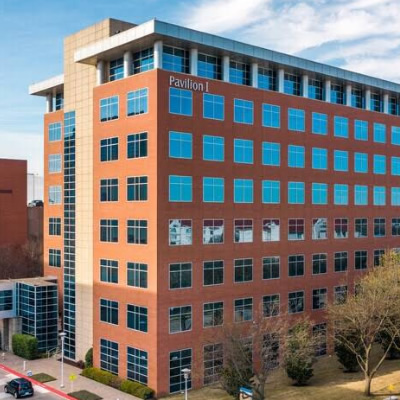
Baylor Scott & White - Plano Brain and Spine Center
4708 Alliance Blvd Pavilion I, Ste 810, Plano, TX, 75093

Baylor Scott & White All Saints Medical Center - Fort Worth
1400 8th Ave , Fort Worth, TX, 76104
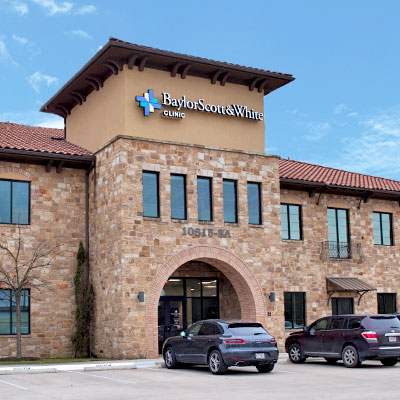
Baylor Scott & White Clinic - Austin River Place
10815 Ranch Rd 2222 , Austin, TX, 78730
- Monday: 8:00 am - 5:00 pm
- Tuesday: 8:00 am - 5:00 pm
- Wednesday: 8:00 am - 5:00 pm
- Thursday: 8:00 am - 5:00 pm
- Friday: 8:00 am - 5:00 pm
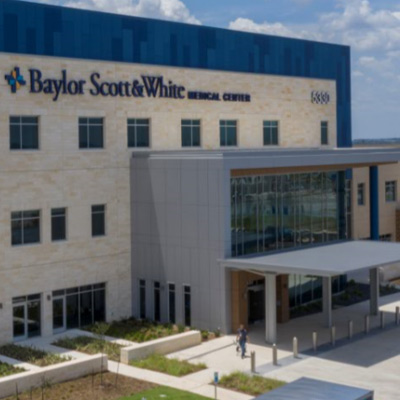
Baylor Scott & White Clinic - Buda Medical Center
5330 Overpass Rd Ste 100, Buda, TX, 78610
- Monday: 8:00 am - 5:00 pm
- Tuesday: 8:00 am - 5:00 pm
- Wednesday: 8:00 am - 5:00 pm
- Thursday: 8:00 am - 5:00 pm
- Friday: 8:00 am - 5:00 pm
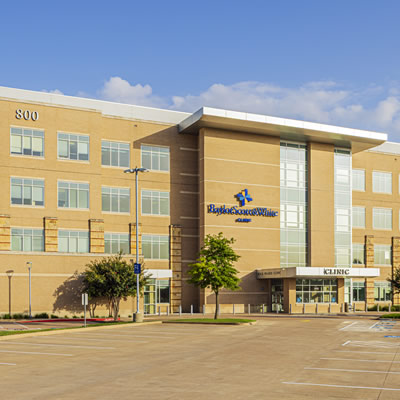
Baylor Scott & White Clinic - College Station Rock Prairie
800 Scott and White Dr , College Station, TX, 77845
- Monday: 7:30 am - 5:00 pm
- Tuesday: 7:30 am - 5:00 pm
- Wednesday: 7:30 am - 5:00 pm
- Thursday: 7:30 am - 5:00 pm
- Friday: 7:30 am - 5:00 pm
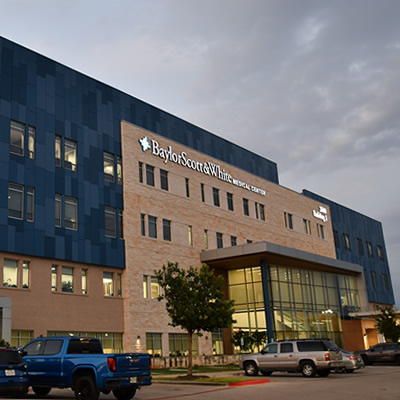
Baylor Scott & White Clinic - Pflugerville Medical Center (Building 1)
2600 E Pflugerville Pkwy Bldg 1, Ste 200, Pflugerville, TX, 78660
- Monday: 8:00 am - 5:00 pm
- Tuesday: 8:00 am - 5:00 pm
- Wednesday: 8:00 am - 5:00 pm
- Thursday: 8:00 am - 5:00 pm
- Friday: 8:00 am - 5:00 pm
- Monday: 7:30 am - 4:00 pm
- Tuesday: 7:30 am - 4:00 pm
- Wednesday: 7:30 am - 4:00 pm
- Thursday: 7:30 am - 4:00 pm
- Friday: 7:30 am - 4:00 pm
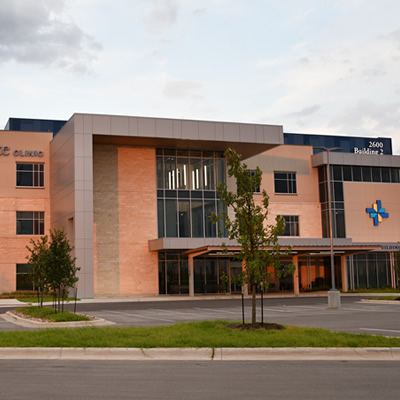
Baylor Scott & White Clinic - Pflugerville Medical Center Building 2
2600 E Pflugerville Pkwy Building 2, Pflugerville, TX, 78660
- Monday: 8:00 am - 5:00 pm
- Tuesday: 8:00 am - 5:00 pm
- Wednesday: 8:00 am - 5:00 pm
- Thursday: 8:00 am - 5:00 pm
- Friday: 8:00 am - 5:00 pm
- Monday: 8:00 am - 4:00 pm
- Tuesday: 8:00 am - 4:00 pm
- Wednesday: 8:00 am - 4:00 pm
- Thursday: 8:00 am - 4:00 pm
- Friday: 8:00 am - 4:00 pm
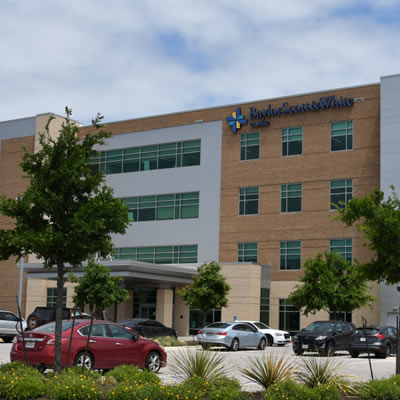
Baylor Scott & White Clinic - Round Rock 300 University
300A University Blvd , Round Rock, TX, 78665
- Monday: 8:00 am - 5:00 pm
- Tuesday: 8:00 am - 5:00 pm
- Wednesday: 8:00 am - 5:00 pm
- Thursday: 8:00 am - 5:00 pm
- Friday: 8:00 am - 5:00 pm
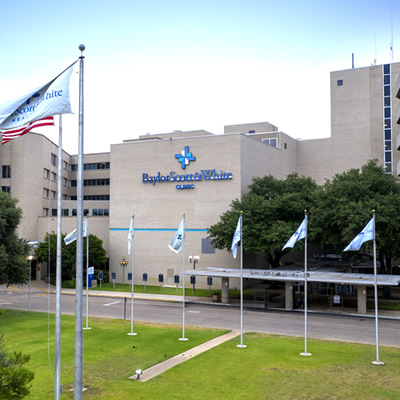
Baylor Scott & White Clinic - Temple
2401 S 31st St , Temple, TX, 76508
- Monday: 8:00 am - 5:00 pm
- Tuesday: 8:00 am - 5:00 pm
- Wednesday: 8:00 am - 5:00 pm
- Thursday: 8:00 am - 5:00 pm
- Friday: 8:00 am - 5:00 pm

Baylor Scott & White Cognitive and Behavioral Neurology Associates
9101 N Central Expy Ste 230, Dallas, TX, 75231
- Monday: 8:00 am - 4:30 pm
- Tuesday: 8:00 am - 4:30 pm
- Wednesday: 8:00 am - 4:30 pm
- Thursday: 8:00 am - 4:30 pm
- Friday: 8:00 am - 4:30 pm
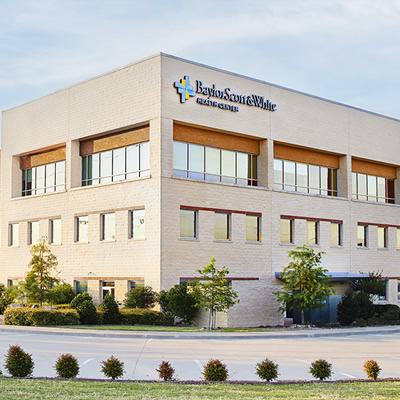
Baylor Scott & White Dallas Diagnostic Association - Garland
7217 Telecom Pkwy Ste 300, Garland, TX, 75044
- Monday: 8:00 am - 4:30 pm
- Tuesday: 8:00 am - 4:30 pm
- Wednesday: 8:00 am - 4:30 pm
- Thursday: 8:00 am - 4:30 pm
- Friday: 8:00 am - 4:30 pm
- Monday: 8:00 am - 4:15 pm
- Tuesday: 8:00 am - 4:15 pm
- Wednesday: 8:00 am - 4:15 pm
- Thursday: 8:00 am - 4:15 pm
- Friday: 8:00 am - 4:15 pm

Baylor Scott & White Dallas Diagnostic Association - Garland (Satellite)
5220 W University Dr POB II, Ste 250, McKinney, TX, 75071
- Monday: 8:00 am - 5:00 pm
- Tuesday: 8:00 am - 5:00 pm
- Wednesday: 8:00 am - 5:00 pm
- Thursday: 8:00 am - 5:00 pm
- Friday: 8:00 am - 5:00 pm

Baylor Scott & White Dallas Diagnostic Association - Plano
4716 Alliance Blvd Pavilion II, Plano, TX, 75093
- Monday: 7:00 am - 5:00 pm
- Tuesday: 7:00 am - 5:00 pm
- Wednesday: 7:00 am - 5:00 pm
- Thursday: 7:00 am - 5:00 pm
- Friday: 7:00 am - 5:00 pm
- Saturday: 8:00 am - 12:00 pm

Baylor Scott & White Headache Medicine Specialists of North Texas - Dallas
9101 N Central Expy Ste 400, Dallas, TX, 75231
- Monday: 8:00 am - 4:30 pm
- Tuesday: 8:00 am - 4:30 pm
- Wednesday: 8:00 am - 4:30 pm
- Thursday: 8:00 am - 4:30 pm
- Friday: 8:00 am - 4:30 pm
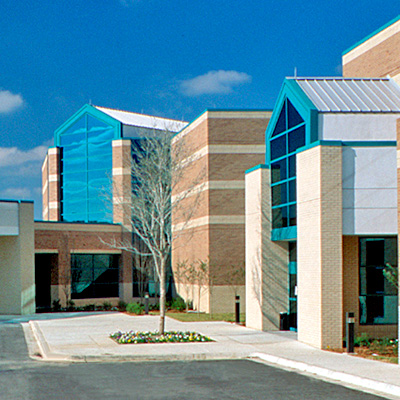
Baylor Scott & White McLane Children's at Baylor Scott & White Clinic - College Station University Drive
1700 University Dr E East Entrance 15, First Floor, Desk P, College Station, TX, 77840
- Monday: 8:00 am - 7:00 pm
- Tuesday: 8:00 am - 5:00 pm
- Wednesday: 8:00 am - 7:00 pm
- Thursday: 8:00 am - 5:00 pm
- Friday: 8:00 am - 5:00 pm
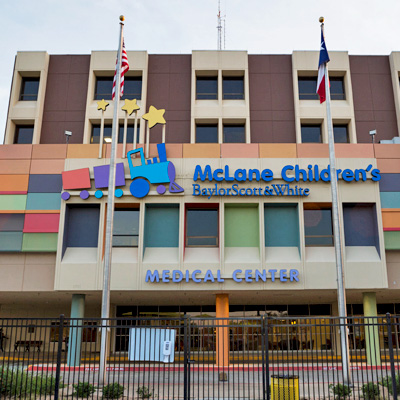
Baylor Scott & White McLane Children's Medical Center - Temple
1901 SW H K Dodgen Loop , Temple, TX, 76502
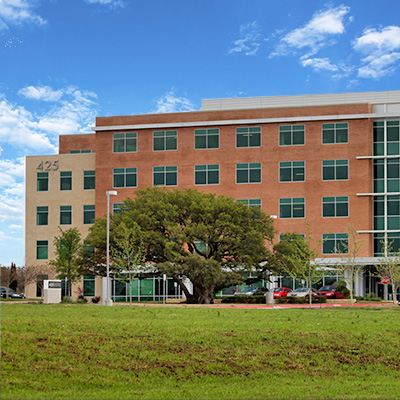
Baylor Scott & White McLane Children's Specialties at Baylor Scott & White Clinic - Round Rock 425 University
425 University Blvd , Round Rock, TX, 78665
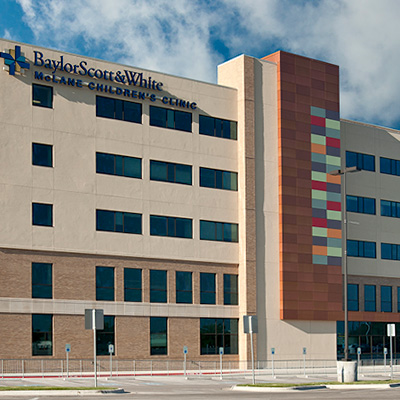
Baylor Scott & White McLane Children's Specialty Clinic - Temple
1901 SW H K Dodgen Loop , Temple, TX, 76502
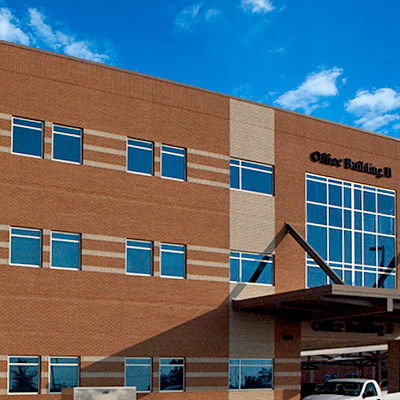
Baylor Scott & White McLane Children's Specialty Clinic - Waco Hillcrest
120 Hillcrest Medical Blvd Bldg II, Ste 101, Waco, TX, 76712
- Monday: 8:00 am - 5:00 pm
- Tuesday: 8:00 am - 5:00 pm
- Wednesday: 8:00 am - 5:00 pm
- Thursday: 8:00 am - 5:00 pm
- Friday: 8:00 am - 5:00 pm
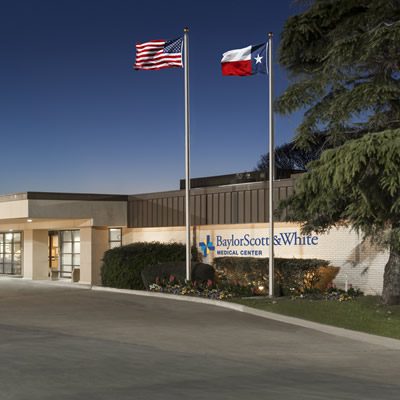
Baylor Scott & White Medical Center - Brenham
700 Medical Pkwy , Brenham, TX, 77833
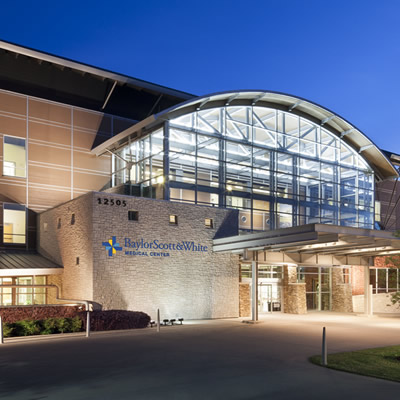
Baylor Scott & White Medical Center - Centennial
12505 Lebanon Rd , Frisco, TX, 75035
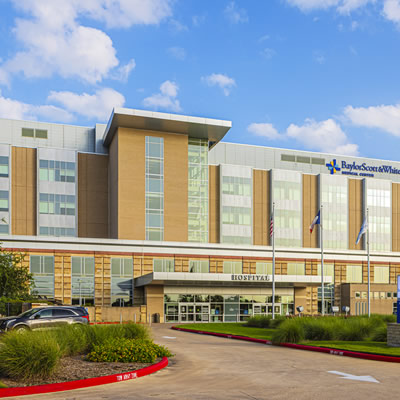
Baylor Scott & White Medical Center - College Station
700 Scott and White Dr , College Station, TX, 77845
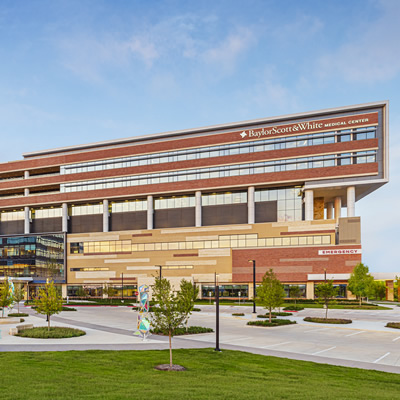
Baylor Scott & White Medical Center - Frisco at PGA Parkway
7600 Better Way , Frisco, TX, 75033

Baylor Scott & White Medical Center - Grapevine
1650 W College St , Grapevine, TX, 76051
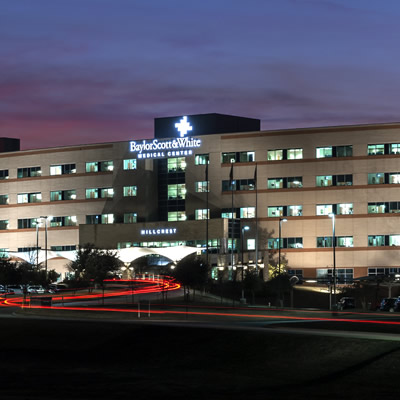
Baylor Scott & White Medical Center - Hillcrest
100 Hillcrest Medical Blvd , Waco, TX, 76712

Baylor Scott & White Medical Center - Irving
1901 N MacArthur Blvd , Irving, TX, 75061
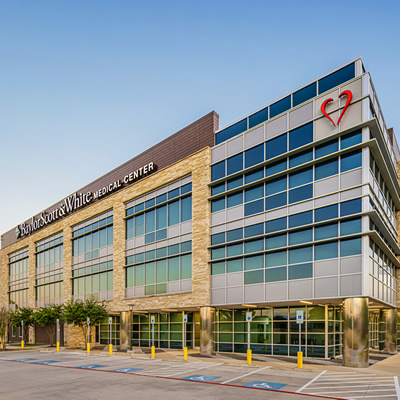
Baylor Scott & White Medical Center - Lake Pointe
6800 Scenic Dr , Rowlett, TX, 75088
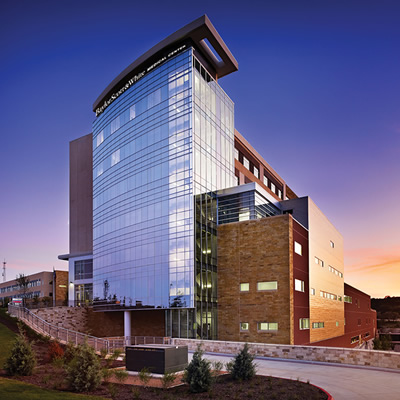
Baylor Scott & White Medical Center - Lakeway
100 Medical Pkwy , Lakeway, TX, 78738
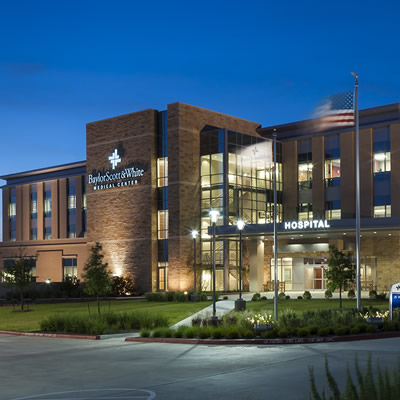
Baylor Scott & White Medical Center - Marble Falls
810 W State Hwy 71 , Marble Falls, TX, 78654

Baylor Scott & White Medical Center - McKinney
5252 W University Dr Highway 380 at Lake Forest Drive, McKinney, TX, 75071
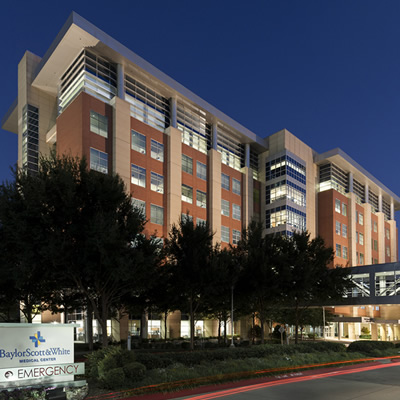
Baylor Scott & White Medical Center - Plano
4700 Alliance Blvd , Plano, TX, 75093
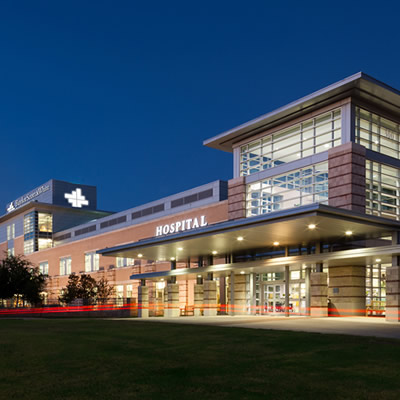
Baylor Scott & White Medical Center - Round Rock
300 University Blvd , Round Rock, TX, 78665
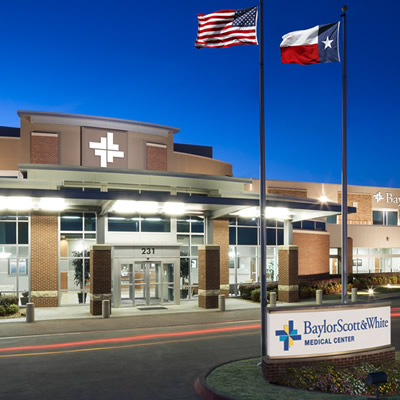
Baylor Scott & White Medical Center - Sunnyvale
231 S Collins Rd , Sunnyvale, TX, 75182
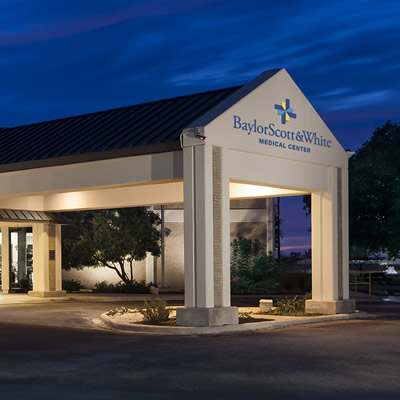
Baylor Scott & White Medical Center - Taylor
305 Mallard Ln , Taylor, TX, 76574
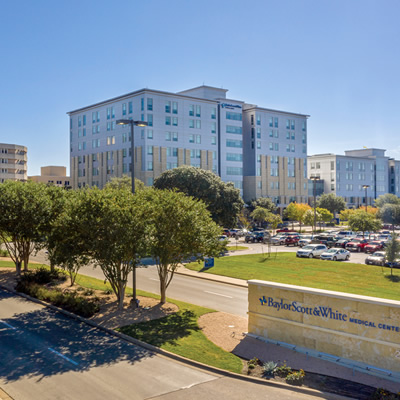
Baylor Scott & White Medical Center - Temple
2401 S 31st St , Temple, TX, 76508

Baylor Scott & White Medical Center - Waxahachie
2400 N Interstate 35E , Waxahachie, TX, 75165
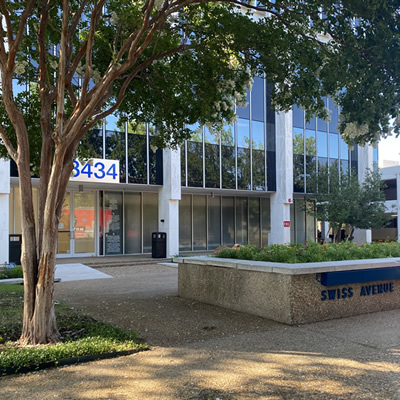
Baylor Scott & White Neurology - Dallas
3434 Swiss Ave Ste 400, Dallas, TX, 75204
- Monday: 7:30 am - 4:30 pm
- Tuesday: 7:30 am - 4:30 pm
- Wednesday: 7:30 am - 4:30 pm
- Thursday: 7:30 am - 4:30 pm
- Friday: 7:30 am - 4:30 pm
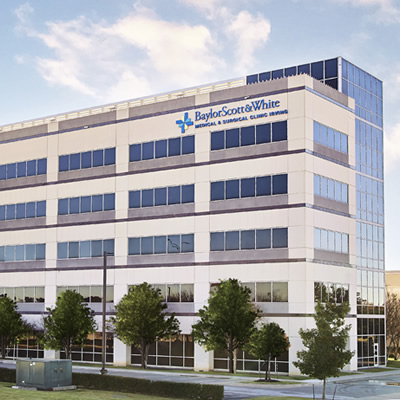
Baylor Scott & White Neurology - Irving
2021 N MacArthur Blvd Ste 210, Irving, TX, 75061
- Monday: 8:00 am - 4:30 pm
- Tuesday: 8:00 am - 4:30 pm
- Wednesday: 8:00 am - 4:30 pm
- Thursday: 8:00 am - 4:30 pm
- Friday: 8:00 am - 1:00 pm

Baylor Scott & White Neurology - Lake Pointe
7600 Lakeview Pkwy Ste 150, Rowlett, TX, 75088
- Monday: 8:00 am - 4:00 pm
- Tuesday: 8:00 am - 4:00 pm
- Wednesday: 8:00 am - 4:00 pm
- Thursday: 8:00 am - 4:00 pm
- Friday: 8:00 am - 4:00 pm
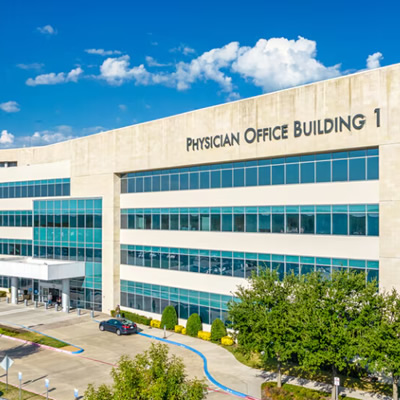
Baylor Scott & White Neurology - McKinney
5236 W University Dr Ste 3700, McKinney, TX, 75071
- Monday: 8:00 am - 5:00 pm
- Tuesday: 8:00 am - 5:00 pm
- Wednesday: 8:00 am - 5:00 pm
- Thursday: 8:00 am - 5:00 pm
- Friday: 8:00 am - 5:00 pm
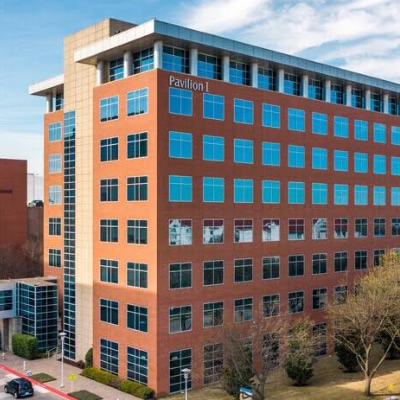
Baylor Scott & White Neurology - Plano
4708 Alliance Blvd Pavilion I, Ste 550, Plano, TX, 75093
- Monday: 8:00 am - 5:00 pm
- Tuesday: 8:00 am - 5:00 pm
- Wednesday: 8:00 am - 5:00 pm
- Thursday: 8:00 am - 5:00 pm
- Friday: 8:00 am - 4:30 pm

Baylor Scott & White Neurology Hospitalist Group - Plano
4700 Alliance Blvd , Plano, TX, 75093

Baylor Scott & White Neuroscience Center
9101 N Central Expy Ste 400, Dallas, TX, 75231
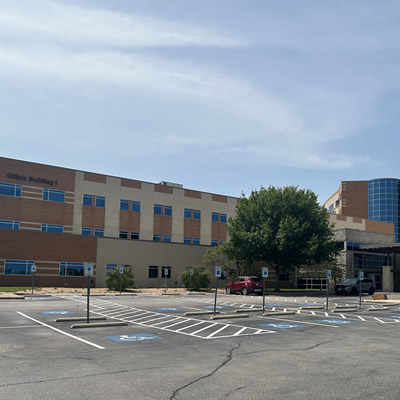
Baylor Scott & White Neurosciences Clinic - Waco
50 Hillcrest Medical Blvd Ste 201-A, Waco, TX, 76712
- Monday: 8:00 am - 5:00 pm
- Tuesday: 8:00 am - 5:00 pm
- Wednesday: 8:00 am - 5:00 pm
- Thursday: 8:00 am - 5:00 pm
- Friday: 8:00 am - 5:00 pm

Baylor Scott & White Specialty Clinic - Horseshoe Bay
201 Bay West Blvd , Horseshoe Bay, TX, 78657
- Monday: 8:00 am - 5:00 pm
- Tuesday: 8:00 am - 5:00 pm
- Wednesday: 8:00 am - 5:00 pm
- Thursday: 8:00 am - 5:00 pm
- Friday: 8:00 am - 5:00 pm
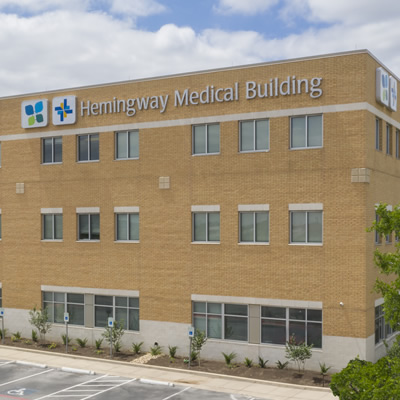
Baylor Scott & White Specialty Clinic - Killeen Hemingway
2405 S Clear Creek Rd , Killeen, TX, 76549
- Monday: 8:00 am - 5:00 pm
- Tuesday: 8:00 am - 5:00 pm
- Wednesday: 8:00 am - 5:00 pm
- Thursday: 8:00 am - 5:00 pm
- Friday: 8:00 am - 5:00 pm
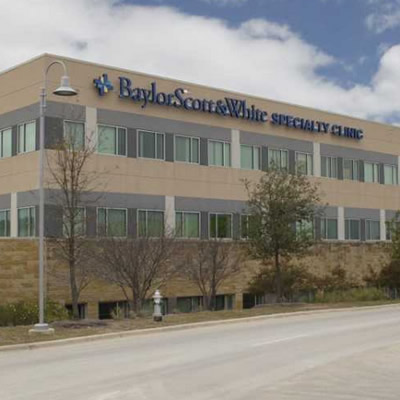
Baylor Scott & White Specialty Clinic - Lakeway
200 Medical Pkwy , Lakeway, TX, 78738
- Monday: 8:00 am - 5:00 pm
- Tuesday: 8:00 am - 5:00 pm
- Wednesday: 8:00 am - 5:00 pm
- Thursday: 8:00 am - 5:00 pm
- Friday: 8:00 am - 5:00 pm
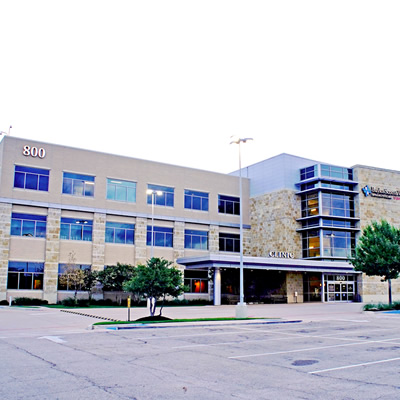
Baylor Scott & White Specialty Clinic - Marble Falls
800 W State Hwy 71 , Marble Falls, TX, 78654
- Monday: 8:00 am - 5:30 pm
- Tuesday: 8:00 am - 5:30 pm
- Wednesday: 8:00 am - 5:30 pm
- Thursday: 8:00 am - 5:30 pm
- Friday: 8:00 am - 5:30 pm
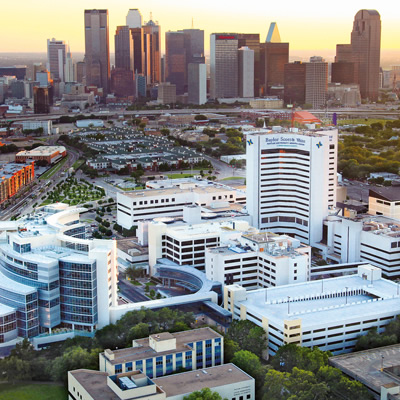
Baylor University Medical Center, part of Baylor Scott & White Health
3500 Gaston Ave , Dallas, TX, 75246

The Headache Center at Baylor University Medical Center
9101 N Central Expy Ste 400, Dallas, TX, 75231
Frequently asked questions
-
What does a stroke feel like?
If a stroke occurs, you may lose strength or feeling on one side of your body. You may also feel severe pain from a sudden headache. You may have difficulty walking, seeing, speaking or understanding others when they talk.
-
Can you have a stroke and not know it?
Yes, you can have a stroke and not know it. So-called silent strokes can cause relatively minor symptoms that can be easy to ignore or blame on something else. A silent stroke, for example, can cause memory problems that may seem like age-related forgetfulness.
-
How can you avoid getting a stroke?
You can avoid getting a stroke by managing chronic conditions that increase your risk, such as high blood pressure and high cholesterol, and making healthy lifestyle changes. These include not smoking, exercising regularly and following a heart-healthy eating plan. As many as 80% of strokes could be prevented with these healthy changes.
-
Can stress cause a stroke?
Stress may not directly cause a stroke, but it can increase your risk. Stress can contribute to heart disease and high blood pressure. Those conditions, in turn, raise your risk for stroke.
-
How common are strokes among the elderly?
Anyone can have a stroke, but it’s more common among older adults. After age 55, your stroke risk doubles each decade.
-
How long does a stroke last?
Stroke durations vary. A TIA may only last a few minutes. In other cases, however, stroke symptoms last for days, weeks, months or longer. Some stroke symptoms can become permanent without medical treatment.
-
Are strokes hereditary?
Yes, strokes can be hereditary. Genetic factors may increase stroke risk, especially with conditions like CADASIL, sickle cell anemia and Moyamoya disease. Specific gene variations also affect blood pressure and clotting. If you have a family history of stroke, talk to your doctor about prevention and early detection.

